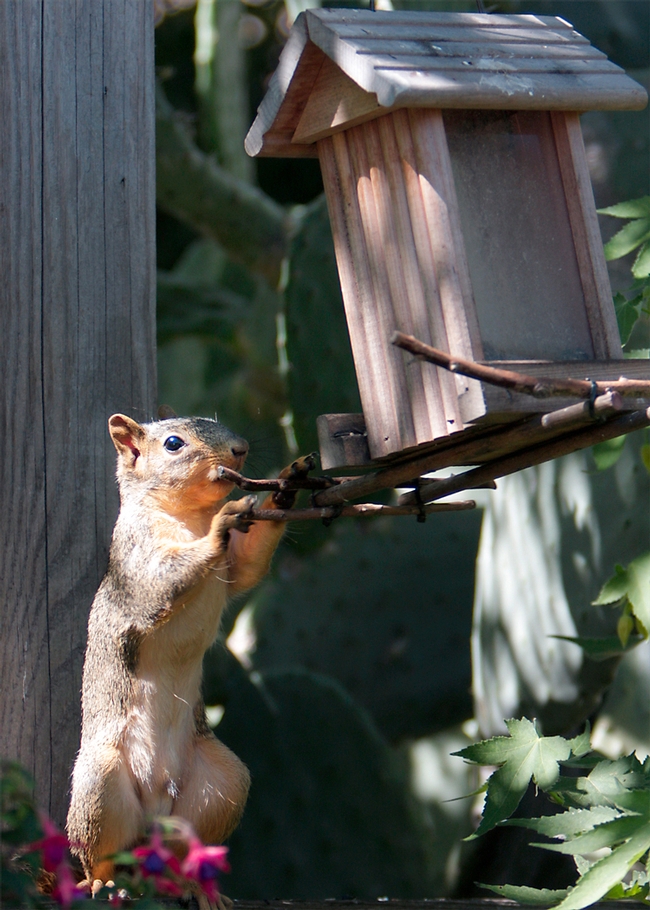Vertebrate Visitor
I enjoy watching the wildlife in our suburban garden, so when a squirrel appeared at our bird feeder, I was very excited. We have lived in our house for more than fifteen years and this is only the second time we have seen squirrels in our garden. The first sighting was not long after we moved in, so I think the current visits may be due to our recent addition of the bird feeder.
I checked the UC Integrated Pest Management website and found the squirrel in my photo is probably an eastern fox squirrel (Sciurus niger), a type of tree squirrel. Tree squirrels are active during the day all year-round (they do not hibernate) and enjoy eating a variety of items, several of which are found in the garden. So far, the squirrels in our yard have only eaten bird seeds, so I don’t mind them visiting - emphasis on visiting. I do not want a squirrel population explosion, like we seemed to have had with rats this summer, but that is a story for another day.
Keeping squirrels out of a garden or away from bird feeders can be challenging because they are very smart creatures. I will move to the birdfeeder farther from the fence, hopefully out of squirrels’ reach. The squirrels in our backyard do not like the presence of dogs, so our dogs will be outdoors more in the coming days where I know they will enjoy more time under the Solano sun.
For more information on managing tree squirrels in the garden visit the UC IPM website: http://www.ipm.ucdavis.edu/PMG/PESTNOTES/pn74122.html
Comments:
For more information on managing rats in the garden ask a Master Gardener for Pest Note #74106 or visit the UC IPM website: http://www.ipm.ucdavis.edu/PMG/PESTNOTES/pn74106.html



Posted by Emily Rued on September 10, 2011 at 6:33 AM